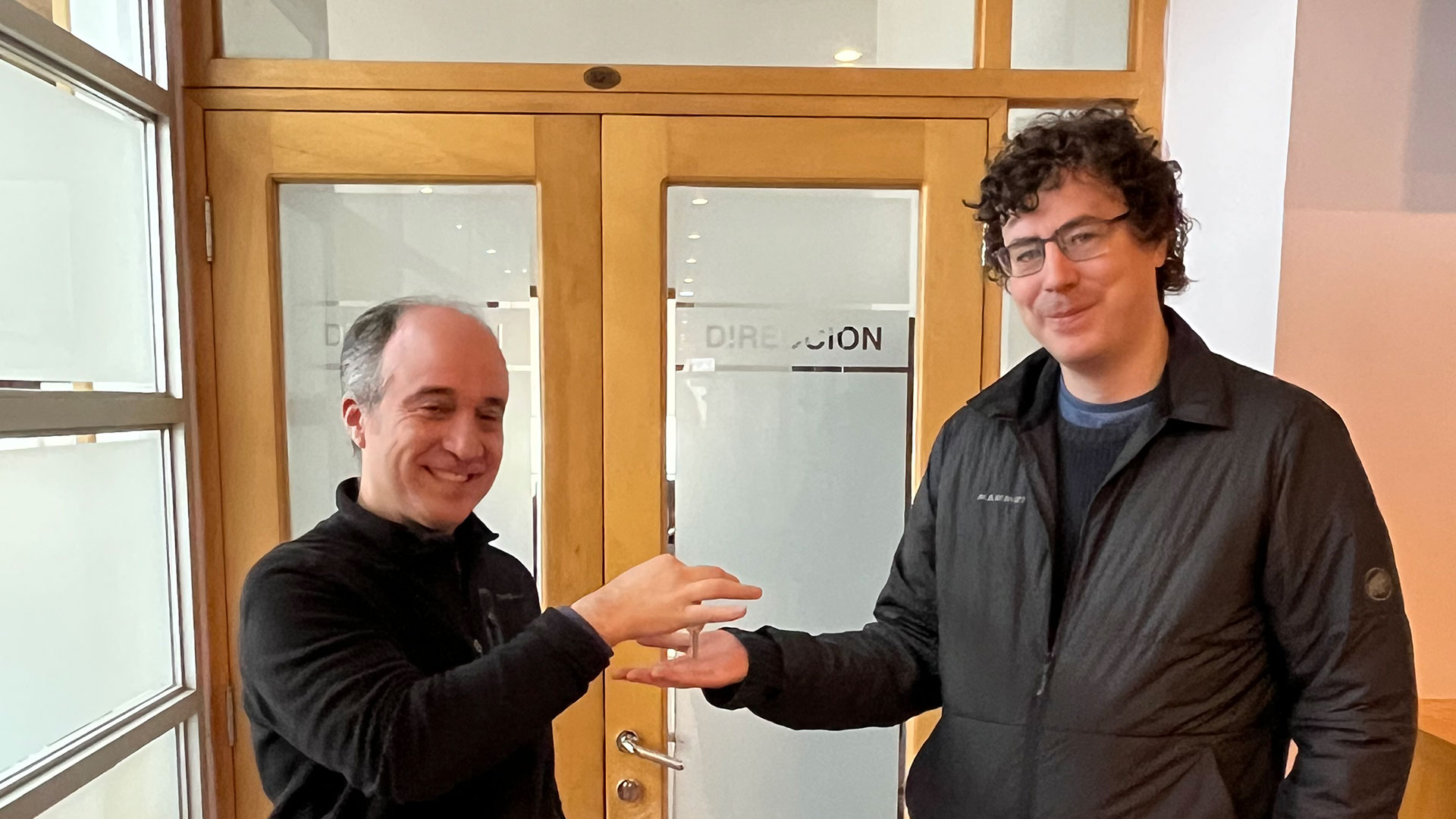Aidan Hogan es el nuevo director del DCC U. Chile
Julio, 2024.- A contar del 19 de julio el director alterno del Instituto Milenio Fundamentos de los Datos y académico del Departamento de Ciencias de la Computación de la Universidad de Chile, Aidan Hogan, asumió como nuevo director del DCC U. Chile, labor que se extenderá por un periodo de dos años. Por su parte, el profesor Alejandro Hevia continuará en la subdirección.
Al asumir este nuevo desafío, el profesor Aidan Hogan comentó que hoy el DCC U. Chile juega un rol cada vez más importante en el contexto del país, pues “la computación toma -cada vez más- un rol protagónico en la sociedad y en nuestras vidas diarias. En este contexto, el DCC U. Chile tiene el rol clave de avanzar el estado del arte en la computación, y de educar y capacitar a los futuros líderes en este tema”, afirmó.
A juicio del académico, los desafíos que enfrenta nuestro departamento son considerables, pero son «desafíos positivos», según explicó: “La carrera del Ingeniería Civil en Computación sigue creciendo en popularidad, tenemos seis veces más estudiantes que en comparación con hace ocho años. Es un desafío positivo, pues subraya la relevancia e importancia de nuestra misión, pero implica que el DCC U. Chile tiene que seguir adaptándose para escalar y cumplir con esta demanda, y lo que requiere el país. El segundo desafío radica en la velocidad con que la disciplina cambia. Hoy en día, por ejemplo, la inteligencia artificial está teniendo un impacto fuerte en la sociedad, y el estado del arte en esa área cambia constantemente. Significa que, de nuevo, el DCC U. Chile tiene que seguir adaptándose no sólo para mantenerse al día, sino también para ser líderes en estos avances en el contexto nacional e internacional”.

En esta línea, el nuevo director expresó que dentro de los principales objetivos de su administración se encuentran, “primero, encontrar formas en que el DCC U. Chile pueda escalar sus procesos para crecer de forma sostenible, manteniendo su espíritu de comunidad, frente el gran aumento de demanda, y así aprovechar plenamente la popularidad y la importancia creciente de la disciplina. Segundo, identificar el rumbo que tenemos que tomar hoy en día para quedarnos bien posicionado en el futuro frente a los bruscos cambios en la disciplina de computación”, concluyó.
Fuente: Comunicaciones DCC U. Chile
